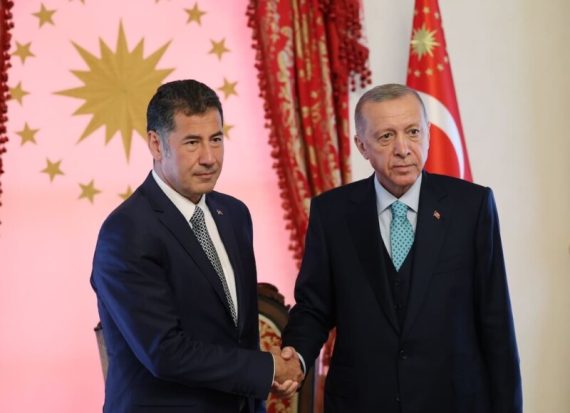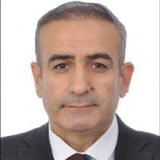T
urkey held presidential and parliamentary elections on Sunday, May 14. The results show that while the Erdoğan-led People’s Alliance obtained a majority of seats in the parliament, the next president will be elected in a runoff on May 28 as President Erdoğan was 0.5% short of the 50% threshold. On the other hand, the opposition’s candidate Kemal Kılıçdaroğlu got 44.9% of the votes followed by Sinan Oğan who surprisingly secured 5.2% of votes.
The elections in Turkey were given great importance not only by competing alliances and parties but also by the electorate, 89% of which voted. The majority of poll companies, most of which are pro-opposition, predicted that Kılıçdaroğlu would win in the first round – which did not happen, nor did he lead the elections.
There are many noteworthy aspects regarding the elections in Turkey. The most striking is certainly the disappointment of the Turkish opposition, which this time was confident about overthrowing Erdoğan and was shocked when all votes were counted. Kılıçdaroğlu had allied with five right-wing parties (Table for Six) plus the pro-PKK party HDP to win the elections. When the ratios of the opposition parties in the previous elections are added up, one could have expected a landslide victory for Kılıçdaroğlu. What is more, their cooperation in mayoral elections had worked well.
In addition, in order to ensure his victory, Kılıçdaroğlu even granted 37 of his party’s parliamentary seats to the small parties of the Table for Six who each get around 1% of votes if they run independently. While the smaller parties are the biggest winners in the Nation Alliance, handing over so many seats to parties with such small vote percentages will certainly be used against Kılıçdaroğlu by his party. The aim of allying with Erdoğan’s former aides was to weaken him, but ironically it looks like the alliance may actually cause Kılıçdaroğlu to lose his CHP chairmanship.
Moreover, unlike expectations, the de facto alliance with the HDP did not help Kılıçdaroğlu achieve victory. The CHP-led Nation Alliance must have thought if it can add the 10% of HDP votes to its own, it could easily win the elections. Kılıçdaroğlu and his companions gave many promises to the HDP such as releasing the party’s former leader Selahattin Demirtaş and discharging the trustees who had replaced HDP mayors.
The HDP was also confident that Kılıçdaroğlu would win: some went so far as to mention freeing Afrin while others claimed they would release Abdullah Öcalan and other inmates. All these claims became viral on social media and, as expected, they caused a backlash. While Kılıçdaroğlu got almost all the votes of the HDP electorate, his concessions to the HDP, led Turkish nationalists to leave the alliance.
This is why the opposition alliance’s nationalist member, the Iyi Party, got only 9.75% of votes since nationalists slide to Sinan Oğan, who was another presidential candidate representing far-right groups. Oğan surprisingly got 5.2% of votes and suddenly became the pivot politician for the runoff.
Oğan has just declared that he will support Erdoğan in the runoff, further reducing Kılıçdaroğlu’s chance of being elected. It is clear that allying with Kurdish nationalists only provoked Turkish nationalists and boosted right-wing parties’ votes including the MHP (Nationalist Movement Party), the nationalist party in the People’s Alliance.
As a result, not the Kurdish nationalism but the Turkish nationalism was (and will be) decisive for the election results. It is therefore clear that any party that allies itself with the HDP should not have high expectations at the polls due to the party’s strong ties with the PKK. The AK Party had also lost votes during the peace process that continued between 2013 and 2015.
Regarding the People’s Alliance, they will be represented by 323 members in the parliament, which means that they obtained the majority in the legislative body. The AK Party will be represented by fewer MPs as its votes shrunk to 35.5%, a 5% decrease from previous elections. On the other hand, the YRP (Yeniden Refah Partisi, New Welfare Party), headed by Fatih Erbakan, the son of former prime minister Necmettin Erbakan, won five seats in the parliament.
Voters who left the AK Party voted for either the YRP or the MHP. Thus, in a sense, voters remained in the alliance. Thus, it emerges that while people’s loyalty to Erdoğan continues, this is not the case for the AK Party. Perhaps both Erdoğan and the AK Party should focus on why people differentiate between the leader and the party.
As for the runoff, both Erdoğan and Kılıçdaroğlu will most probably keep their current voting rates as people have cast their vote consciously. Erdoğan will additionally get votes of Oğan’s supporters though not all of them. It is not clear whether Erdoğan promised anything to Oğan but logically siding with Erdoğan was the best choice for Oğan since the president needs only 0.5% to win.
Turkey will elect its new president on May 28 and the incumbent president Erdoğan is more likely to win since he is 4.5% ahead of his rival, Kemal Kılıçdaroğlu. If no extraordinary developments take place, Erdoğan will start his last term on May 29. Meanwhile, it should be noted that he is 3% behind his vote ratio when compared with the previous election. That said, the result is still a success as he is close to a new victory. In addition, since the previous elections, Turkey has experienced two economic crises, a pandemic, and devastating earthquakes. Despite these man-made and natural disasters, Erdoğan will most likely lead his country for five more years.
Recommended





